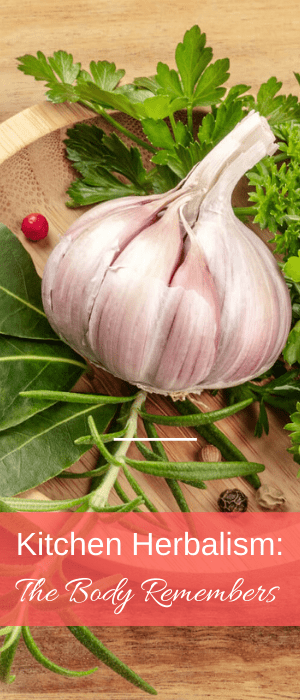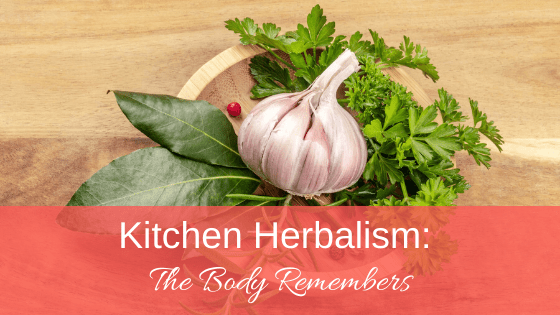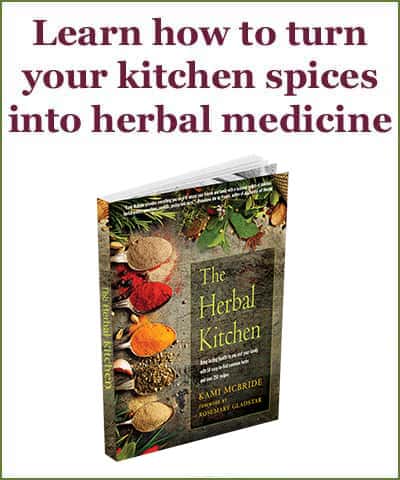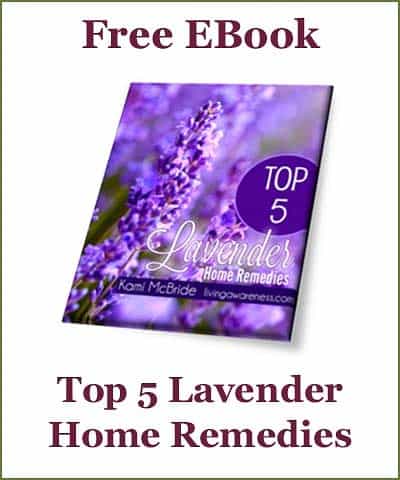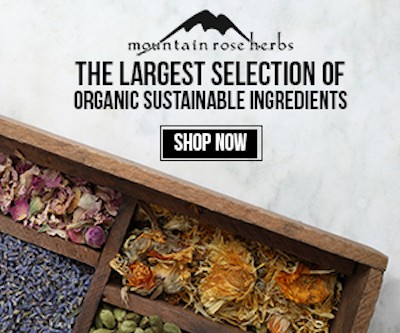There is actually a thing called, “Information Fatigue” and I am seeing it a lot now with herb students. We have to get back to an embodied study of herbal medicine.
The Mythic Medicine Podcast with Amber Magnolia Hill is like a breath of fresh air, if you haven’t checked her out, she is rocking it: https://mythicmedicine.love/podcast/kami-mcbride-kitchen-herbalism
I joined Amber on her podcast early last year and seriously have been getting emails and notes from people every week about how they feel inspired by the conversation Amber and I had.
Kitchen Herbalism: The Body Remembers. I’ll write here a big of what we start to talk about, but really, do yourself a favor and listen to us on Amber’s Podcast.
Amber: Today, we’re going to really focus specifically on kitchen herbalism. I love that you have this focus because I think, especially for newcomers onto the plant path, it came seem really overwhelming like “Do I have to know these herbs and how to use them?
How to formulate? How to know which ailment to use what for?” Herbalism is so much simpler than that. Actually, we all work with herbs more or less if we are spending any time in the kitchen, everyday in the kitchen without even realizing the medicinal value of what we’re doing.
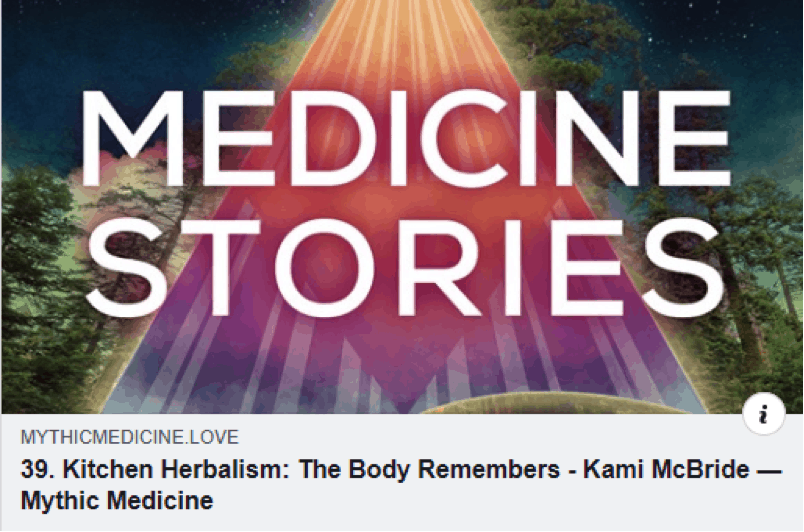
Kami: That is so true. You are so right about onboarding into the herbal world. That’s the biggest problem. People are experiencing overwhelming confusion. I’ve been teaching herbal medicine for over 30 years now, and there is actually a thing called, “Information Fatigue” and I am seeing it a lot now with herb students. We have to get back to an embodied study of herbal medicine.
Culture begins in the kitchen. You’re already in the kitchen. You’re already feeding and nurturing your family. Kitchen herbalism is the way to really get into it without having to go through a whole, huge course or take it on as a master’s degree or you have to go back to school. When we have kids, it’s like what’s expected of us: to be able to take care of our children to prevent them from getting illness. I mean, it’s a tall order if you’re not already on the herbal train. It takes a lot of bandwidth to learn.
Kitchen herbalism cuts through all of that. It cuts through the busyness and the overwhelm. It gets you started. It’s something that you can get started with today, right now, right away, and have a massive influence on the nutrition, the care of yourself and the people around you.
Amber: Absolutely. It’s so simple. You can buy these herbs at the grocery store, but they are also some of the easiest to grow right in your kitchen window or just outside your door. Speaking of motherhood, when you said that, it just made me think that I have been able to take care of every single ailment for 12 ½ years now as a mother, that my children have had at home.
Because I was empowered. Because I did your apprenticeship when my oldest was a baby. I learned these simplest things. These things that my grandmothers knew, that most generations before ours knew how to do. It’s not rocket science. It’s really simple, delicious, nourishing and fun. It’s enjoyable.
I remember you saying, Kami, that women are meant to gather together and make food and medicine for their loved ones. I have found that to be so true. We love doing that. I think it really flows through our blood. We just need to get back into the kitchen with those herbs and start.
Kami: That’s the fuel for this. That’s where The Herbal Kitchen comes alive. Maybe it might seem like a stretch that the herbs you use in your food, in your kitchen, can ultimately affect how medicine is practiced in this country.
It’s already happening. It’s just about the critical mass of enough people being literate and) the value of using kitchen remedies. That’s what’s pushing the medical system to change. That’s why medical doctors now are prescribing ginger for chemotherapy side effects. It’s a bottom-up process.
We all have to get smarter if we’re going to shift our antiquated medical system or what are we going to do? Follow the doctor’s advice and take Tylenol?
My deepest desire is that everybody can start practicing kitchen medicine–herbal kitchen medicine.
It’s a movement. The more we bring the herbs into—you just don’t underestimate the power of getting those herbal sprinkles on your table because 10 years ago, it was a desert. Nobody has even really heard of elderberry syrup.
Now, it’s gaining traction–the home herbalist movement. In 10 years from now, making elderberry syrup is going to be kind of like making chicken soup. It’s a bottom-up process. It starts in every kitchen with every meal and anybody can do it.
Amber: It’s so exciting to think about there being a revolution; a true food revolution of just people cooking at home and knowing how to take care of common ailments with everyday plants and herbs. It’s so simple. It’s so funny that we talk about it as if it would be a revolution, but it would be because of what we’ve got and then the culture. I just can’t emphasize enough how easy it is.
I have to admit that I’m not much of a cook. I don’t love being in the kitchen. I’m just always like, “I’d rather be reading a book or writing something or podcasting.” I really admire people who just love the process of being in the kitchen. Every time I pick up your book, I am so inspired to make something. These recipes are simple. They are so easy to understand and to use.

Kami: What I do is, at the beginning of the week, I have some organization time on Sunday. I take a few moments and go, “Okay, what’s happening with me? I’ve been writing a lot, so I just need help with circulation, keep things moving. What’s happening with my son? He’s just been overheated.” I just look at the people that I live with, take a snapshot and then I create from there. I’ll set up some tea blends.
I’ll pull some things out and I’m like, “This is what would be good for the week.” It’s not 3:00 every afternoon, you’re going, “What do I need to do?” Just taking even 15 minutes of organization time because the choices are endless. How many supplements do you have sitting on your shelf that you never take? You have to at each week or every couple of weeks just go, “What are the 5 or 7 or 3 herbs that we’re going to do for this week or the next couple of weeks?” Pull them out and put them on the shelf. That’s what I do.
Amber: That’s so brilliant, Kami. I admire you so much. I went to a really amazing family meal planning course that a friend did a few months ago. It was great and we’ve really implemented it, but to add the level of what you’re talking about into that meal planning moment of “What’s going on with us? What might we need this week?” I’m thinking, especially when we get into the end of summer here in California and it’s so dry and it’s so hot and the wildfire threat is everywhere; there might be smoke in the air from a nearby fire, I’m always like, “What do I do? I didn’t plan for this.” I know I could be supporting my body and my family’s bodies nutritionally right now better for what’s going on, but I didn’t plan for it and now I’m like, “What do I do?” so I’m absolutely going to start doing that. Thank you so much.
Kami: It’s like what’s happening with us, what the season is, part of that just takes a little bit of planning, so you don’t have to make the decision every day. That’s where we fall down. I just can’t think about that everyday.
Join Amber and I over here to listen to the full conversation.
